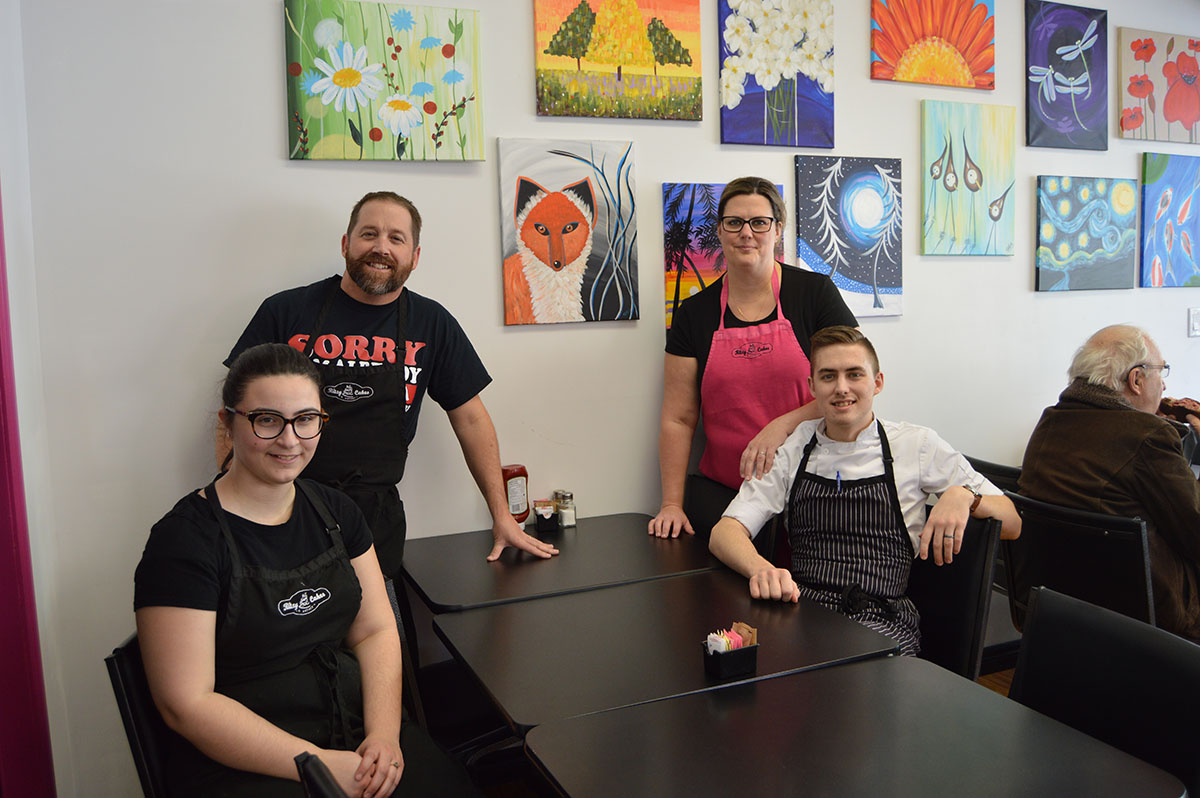Aboriginal entrepreneurs’ experiences, successes, and challenges in Ontario today came to light at the launch of a Canadian Council for Aboriginal Business (CCAB) survey.
JP Gladu, CCAB president and CEO, led a discussion about CCAB’s most recent research endeavor, Promise and Prosperity: the Ontario Aboriginal Business Survey 2014 at the Toronto Marriott Downtown Eaton Centre Hotel on April 8.
“We need to understand that Aboriginal business is also big business. It’s not just local business. It’s not just regional business or provincial business. Sometimes it’s actually international business. We need to be able to support that and showcase it to the rest of the community because there’s a stereotype that we’re not good at business – that we’re a financial drain on Canada’s economy while quite the opposite is true in this country,” said JP Gladu.
CCAB worked with Environics Research Group to conduct the survey. The group spoke to more than 300 Aboriginal businesses, sole propriertorships or partnerships, across Ontario, mostly by telephone, while JP Gladu met with community members, community leaders, and business leaders.
“The survey is a vital link in our continuing commitment to building the bridge between corporate business Canada and Aboriginal business,” said JP Gladu at the Marriott. “We need to embrace our own statistics to serve our business community and accurately inform potential markets and partnerships. The survey is the voice of our business community reflecting their challenges, successes, and potential.”
Sarah Roberton, senior research associate for Environics Research Group, outlined the research findings in three topics: why and how the research was done, what was found in the research, and the next steps for Aboriginal businesses, government, and the private sector.
Roberton mentioned how census findings reveal about 9,000 First Nations, Metis, and Inuit people in Ontario have their own business. She noted how these businesses are critical to develop healthy, prosperous Aboriginal communities and to create jobs for young Aboriginal job seekers, a growing population.
Roberton went on to note how the survey shows that Aboriginal businesses in Ontario can be characterized by size, diversity, success, and optimism.
The survey revealed that the businesses are fairly small. Eight in 10 are unincorporated. Two-thirds don’t have any employees. Eight in 10 have annual revenues of less than $100,000.
The businesses are diverse in terms of the industry and service sectors they represent. They have access to a wide range of markets. They operate at local, national, and international levels. They work with consumers, governments, and the private sector –both Aboriginal and non-Aboriginal.
Aboriginal business in Ontario is successful in terms of financial criteria. Eight in 10 said they’d been profitable in the past year. Almost half had increased their sales revenues in the past year. One-third created jobs for other people. Among the group who created jobs, most of them have at least one Aboriginal employee. Nine in 10 said they believe they are successful.
The entrepreneurs are optimistic. Eight in 10 expect to increase their business income in the next couple of years. Three-quarters expect their annual sales revenue to grow. Three-quarters anticipate they will still be running their business in five years.
Roberton noted two factors linked businesses to success. The most successful group is likely to have innovated by introducing new products or services and they are twice as likely to have a business plan.
Roberton identified three key barriers to further growth. The first one is workforce development. One-third of Aboriginal businesses have employees and most have at least one Aboriginal employee. Attracting qualified workers and retaining qualified workers becomes a problem as firms grow.
The second barrier is access to financing. Smaller entrepreneurs find lack of collateral a challenge. Most Aboriginal businesses use personal savings to start. Even past the start up phase, they continue to use personal savings along with retained earnings. Larger Aboriginal businesses have better access to loans and lines of credit.
The third barrier is limited access to support. Some of the businesses turn to local colleagues including Aboriginal organizations when they need mentorship and advice. A significant minority say they don’t have anyone to turn to.
Paul-Emile McNab, CCAB research coordinator, described how based on the findings of the survey, the following actions by governments, financial institutions, and Aboriginal entrepreneurs will help achieve success.
One recommendation is for Aboriginal entrepreneurs to build partnerships with larger, successful ventures, both Aboriginal and non-Aboriginal. The most obvious benefit is access to capital. It’s also an opportunity to access other collateral that comes from partnerships like training and experience, mentoring and advice, equipment, physical location or a skilled workforce.
Governments can make a significant contribution to Aboriginal business in workforce development. There’s a need for effective programs and policies to help businesses train and retain skilled Aboriginal employees.
Financing is a significant barrier for Aboriginal businesses. The difficulties include where to find it, how to apply for it, and how to meet the necessary requirements. Many give up on outside financing. Financial institutions who identify simpler and more effective ways to provide financing will be in the best position to capitalize on the growing business community.
There’s an opportunity to build stronger Aboriginal business networks. Aboriginal entrepreneurs need to know where to turn when they require support. McNab noted how a useful first step would be the bringing together of Aboriginal businesses, governments, private sector and local or regional networks.
The bringing together of these groups along with the statistical information found in CCAB’s survey work towards realizing the potential of Aboriginal business in Ontario.
Got a Story? Email millie.tworowtimes@gmail.com if you have a Business story in Toronto.











